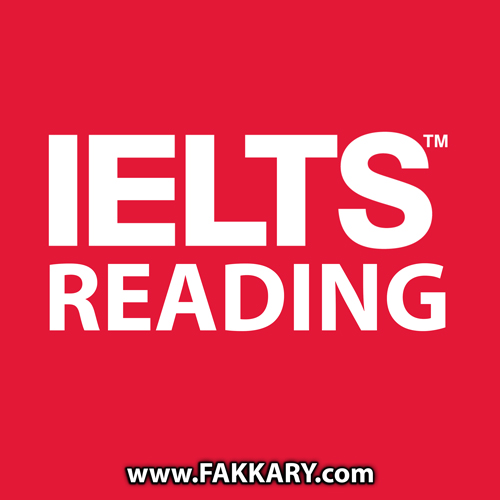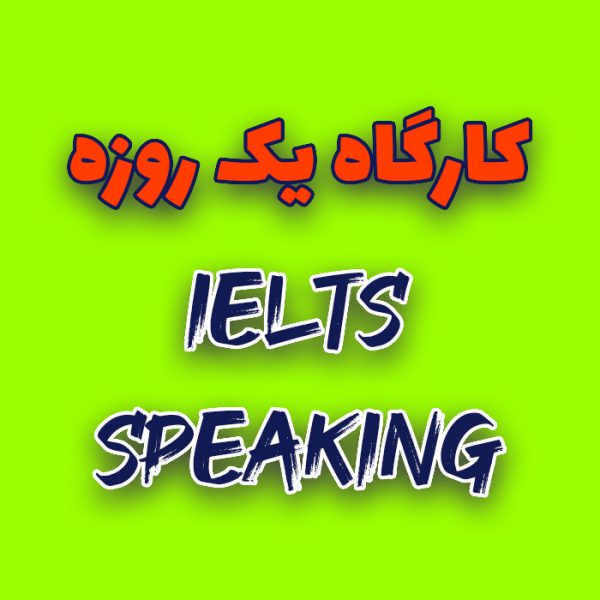آموزش زبان انگلیسی و آیلتس با آکادمی آیلتس فکاری
یکی از راههای تقویت مهارتهای آیلتس خوندن حداقل یک متن در طول روزه. شما میتونید از این راه هم دامنه لغات خودتون رو افزایش بدید هم با کاربرد صحیح کلمات و گرامرهای مختلفی در متن آشنا بشید. آکادمی فکاری در کنار فروش دورههای جامع آموزش مهارتهای آیلتس این امکان رو برای شما فراهم کرده که بتونید متون بیشتری رو بخونید و تمرین کنید. با این روش شما اطلاعات عمومی خودتون رو در زمینههای مختلف هم افزایش میدید و راحتتر میتونید در قسمت writing ایده پردازی کنید.
پس بریم که این متن رو با هم بخونیم:
Are We Happier than Our Forefathers?
Never would one answer ‘yes’ to this question if he had the chance of living even for a short span in the tranquil society of the past. No doubt that the modern man enjoys the production and consumption of the goods which our forefathers could not even imagine; no doubt that all the impossibilities have become possible thanks to technology. Today an average citizen enjoys the facilities which even the kings and emperors of the ancient times did not have access to. If we think that happiness consists of material comfort, no doubt we are happier than our forefathers. If pleasure can be called happiness, we are indeed happier.
But for us the benchmark of happiness is not rolling in whatever we can think about. Modern life has all done away with happy life. Modern life has taught us to be for ourselves. Modem life has taught us to stand aloof from the simple, ordinary people who live in our vicinity. Overtaking others because of not lagging behind has become the only purpose in everybody’s life. Our modern life with an LED with the size of a wall monitor in our luxurious houses does not allow us to be happier than our forefathers. We get so mesmerized by this source of second hand enjoyment that we never take any notice of the feelings of our own family folks let alone to hear any cry for help from the other side of the fence. The days when walls made no sense for the kind-hearted neighbors are gone. The days when two neighbors were so confidential that they would confide their secrets to each other are gone. Today, you would be surprised if a person knows who lives next door. This cold-blooded fashion of life leaves no room for happiness.
On the other hand, our forefathers led a Spartan life. Although it was a life with no comfort or luxury, it was simple but replete with happiness. This is persuasive evidence to our claim. They went through life in a happy-go-lucky fashion. They had fewer wants and they were satisfied with what they earned by working hard. They were strong, sturdy, and healthy and would extremely enjoy simple things of life. An 85-year-old father was undoubtedly satisfied and happy with his mono-wave old radio. He lived a contented and peaceful life.
Today, people are confined in their hive-like flats in total solitude. In our forefathers’ time, neighbors used to meet up every now and then to exchange their news and views and reminisce about the past. They shared their happiness and expressed sympathy over each other’s sorrows. They preserved their fellowship. That was the true meaning of happiness for them. Our forefathers enjoyed sheer peace and quiet. Stress, agitation, jealousy, hypocrisy, and the words likewise hardly ever existed in their simple lives. Their underdeveloped small village abounded in honesty. No one had a cunning character. No one made a constant effort to besmirch their fellows. You could never find anyone with unscrupulous behavior.
Apart from these humanistic approaches to life, they never ever had the sort of social problems we face today. Nowadays city life is full of noise and congestion, hustle and bustle, and hurry and worry. Life is millions of stress and tension. Today stress-related diseases have wrested the healthy lifestyle from modern men. You can find long queues in front of doctors’ offices. People buy medicines more than their groceries. Once I happened to talk with an old man of seventy who was quite knackered in one of those queues. He was there for his son’s asthma. I asked him if he ever felt happier than his son. His frank and honest reply was sufficient enough to make everything clear for me. He said he had never taken any medicines during his lifetime.
Today there is pleasure but no contentment. We do not have peace of mind; we have totally been perplexed by our mechanical life; we have been surrounded by modem machines; we have been captured by the remote controls; we do not need to move a finger or stand up; we have them at our disposal. We have become couch potatoes and new technology is to blame. We have completely turned into a lazy generation. Can a lazy generation enjoy happiness? Of course, NOT.
ریدینگ آزمون آیلتس:
مهمترین نکته برای موفقیت در ریدینگ آیلتس، درک درست متونه. اینکه شما بتونید منظور نویسنده رو درست متوجه بشید نقش اصلی رو در انتخاب پاسخ درست ِ سوالها داره. در واقع هرچه بیشتر متن رو درک کنید راحتتر میتونید به سوالها جواب درست بدید. پس حالا وقتشه که بعد از خوندن این متن چندتا سوال درک مطلب رو باهم تمرین کنیم.
Comprehension questions
1. What is the author’s opinion on whether we are happier than our forefathers?
2. What does the author suggest is the benchmark for happiness?
3. According to the passage, what is the impact of modern technology on our social lives?
4. What are some of the characteristics of the simple life led by our forefathers, as described in the passage?
5. How does the author suggest that modern life has impacted our physical health?
6. What is the author’s opinion on whether a lazy generation can enjoy happiness?
اهمیت واژگان:
داشتن دامنه لغت مناسب میتونه یک نقش کلیدی در موفقیت شما در آزمون آیلتس داشته باشه. پس لازمه که بعد از خوندن هر متن لغات اون متن رو یاد بگیرید. متنی که باهم خوندیم لغتهای مهمی داشت که احتمالا برای شما نا آشنا بوده. بریم یاهم چند تا از این لغات رو یاد بگیریم:
Vocabularies
1. Tranquil – Adjective: calm, peaceful.
Example: The tranquil atmosphere of the countryside helped him relax.
2. Consumption – Noun: the act of using something up.
Example: The consumption of oil has increased due to industrialization.
3. Impossibilities – Noun: things that cannot be done or achieved.
Example: It was once thought that flying was an impossibility, but now it’s common.
4. Facilities – Noun: buildings, equipment, or services provided for a particular purpose.
Example: The school has excellent facilities for sports and arts.
5. Benchmark – Noun: a standard or point of reference against which something can be measured or judged.
Example: The best practices in the industry serve as a benchmark for other companies.
6. Aloof – Adjective: not friendly or willing to take part in things.
Example: She kept aloof from the rest of the group.
7. Overtaking – Verb: to go past someone or something that is moving more slowly.
Example: The cyclist overtook the car on the narrow road.
8. Mesmerized – Verb: to hold someone’s attention completely.
Example: The children were mesmerized by the magician’s tricks.
9. Cold-blooded – Adjective: unfeeling or lacking compassion.
Example: The CEO’s cold-blooded decision to lay off employees was met with criticism.
10. Spartan – Adjective: showing the indifference to comfort or luxury.
Example: The hostel had Spartan facilities but was cheap.
11. Replete – Adjective: filled or well-supplied with something.
Example: The book was replete with references to ancient mythology.
12. Happy-go-lucky – Adjective: carefree and without worries.
Example: He had a happy-go-lucky attitude that made him popular with his friends.
13. Sturdy – Adjective: strong and robust.
Example: The table was made of sturdy oak wood.
14. Contented – Adjective: happy and satisfied with one’s situation.
Example: She was contented with her life despite not having much money.
15. Solitude – Noun: the state of being alone.
Example: She sought solitude in the library to study.
16. Fellowship – Noun: companionship or friendly association.
Example: The church members enjoyed the fellowship of each other.
17. Underdeveloped – Adjective: not fully developed or advanced.
Example: The underdeveloped country lacked proper infrastructure.
18. Abound – Verb: to be present in large numbers or in great quantity.
Example: The garden abounded with flowers.
19. Cunning – Adjective: having or showing skill in achieving one’s ends by deceit or evasion.
Example: The cunning fox outsmarted the farmer and stole the chickens.
20. Unscrupulous – Adjective: having or showing no moral principles.
Example: The unscrupulous businessman made a fortune by exploiting his workers.
21. Humanistic – Adjective: relating to human beings and their culture, philosophy, and values.
Example: The humanistic approach to education emphasizes the development of critical thinking skills.
22. Congestion – Noun: the state of being crowded or packed with people or things.
Example: The traffic congestion in the city was unbearable.
23. Hustle and bustle – Noun: busy and noisy activity.
Example: The hustle and bustle of the market was overwhelming.
24. Stress-related – Adjective: caused or worsened by stress.
Example: She suffered from stress-related headaches due to her work pressure.
25. Knackered – Adjective: extremely tired.
Example: After the long hike, he was knackered and could barely walk.
26. Perplexed – Adjective: completely baffled or puzzled.
Example: After reading the complicated instructions, John was perplexed and had no idea how to assemble the new furniture.
اصطلاحات:
یادگیری اصطلاحات در متون، اهمیت زیادی داره؛ چراکه باعث میشه منظور نویسنده و بار معنایی جملات رو بهتر درک کنید. علاوه بر این، با یادگیری بیشتر ِاصطلاحات شما میتونید سطح زبان خودتون رو بالاتر ببرید و این حتی دیدن فیلم و سریالها بدون زیرنویس رو برای شما راحتتر میکنه. اگه موافق باشید حالا میتونیم به اصطلاحات متنی که خوندیم یه نگاهی بندازیم:
Idioms
1. “Spartan life”
Meaning: A life with few comforts and luxuries but filled with happiness and contentment.
Example: Our forefathers led a Spartan life and found joy in simple things like spending time with their family and friends.
2. “Happy-go-lucky fashion”
Meaning: Carefree and enjoying life without worrying too much about the future.
Example: Our forefathers went through life in a happy-go-lucky fashion and didn’t let the stress of modern life get to them.
3. “Hive-like flats”
Meaning: Small apartments that are packed tightly together.
Example: Nowadays people are confined in their hive-like flats in total solitude and don’t have the sense of community that our forefathers had.
4. “Sorrows shared”
Meaning: When people come together to express sympathy for someone’s sadness or misfortune.
Example: Our forefathers shared their happiness and expressed sympathy over each other’s sorrows, something that we rarely see in modern society.
5. “Peace and quiet”
Meaning: A peaceful and calm environment without noise or disturbance.
Example: Our forefathers enjoyed sheer peace and quiet, unlike the noise and congestion of modern city life.
6. “Stress-related diseases”
Meaning: Medical conditions that are caused by excessive stress and anxiety.
Example: Today stress-related diseases have wrested the healthy lifestyle from modern men and women, and people are queuing up at doctors’ offices more than ever before.
7. “Knackered”
Meaning: Extremely tired or exhausted.
Example: I talked to an old man of seventy who was quite knackered in one of those queues, waiting for his son’s asthma medication.
8. “Mechanical life”
Meaning: A life that is dominated by technology and machines.
Example: We have been surrounded by modem machines and captured by remote controls, leading to a mechanical life that leaves us feeling perplexed and unfulfilled.
9. “Couch potatoes”
Meaning: People who spend a lot of time sitting or lying down and watching TV, instead of being active.
Example: We have completely turned into a lazy generation and become couch potatoes, thanks to the ease of access to entertainment and technology.






